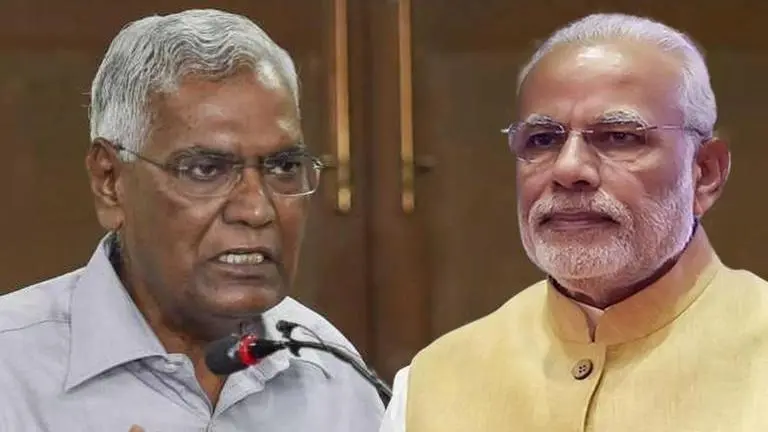Updated 5 November 2019 at 17:29 IST
CPI's D Raja lauds Prime Minister Narendra for opting out of RCEP
General Secretary of CPI D Raja praised PM Modi for opting out of the RCEP and considering the concerns expressed by the opposition parties in this regard.
- India News
- 3 min read

General Secretary of Communist Party of India (CPI) D Raja on Tuesday praised Prime Minister Narendra Modi for opting out of the Regional Comprehensive Economic Partnership (RCEP). Raja further said that the government has considered the concerns expressed by the opposition parties.
'Country's interest must be taken into consideration'
Lauding the government for paying heed to opposition parties' demands, D Raja stated that the "Opposition parties pressurised the government that it should not sign the deal in haste. It is good that the government considered it. One should understand that this is how democracy should work and the government should listen to the concerns with open mind expressed by parties in Opposition. We are all speaking for the interest of our country and this is what BJP should understand.”
D Raja reiterated, "Our party, the CPI and other left parties were consistently speaking on this issue urging the government not to sign any deal before everything is discussed in the Parliament. There should be proper consultation with the domestic stakeholders. The countries interest must be taken into consideration.”
Advertisement
India's 'Nation First' policy
In a major decision reflecting India's 'Nation First' policy, India on Monday has refused to join the RCEP. The Centre released an informal press note sharing details on how the move will affect India's farmers, MSMEs, and dairy sector. India believes its decision displays its openness to global competition while boosting India’s service sector. The signing of the RCEP has been deferred to next year. The RCEP is a proposed free trade agreement (FTA) between the ten member states of the Association of Southeast Asian Nations (ASEAN) and its six FTA partners, launched in 2012. The member nations include Brunei, Cambodia, Indonesia, Laos, Malaysia, Myanmar, the Philippines, Singapore, Thailand, Vietnam, and the FTA members include China, Japan, India, South Korea, Australia and New Zealand. The agreement aims at dropping tariffs and duties between the members to allow a free flow of goods and services.
Advertisement
India wary of the RCEP
India is wary of this agreement, as the Centre feels with the lowering of import duties, the domestic industries will not be able to compete with China and the inflow of goods. According to reports, the main sectors which would feel the pinch are the milk industry, textile and traders. Reports suggest that the recent slowdown in India's core industry would also affect in case tariffs are lowered.
(INPUTS FROM ANI)
Published By : Yash Sanghvi
Published On: 5 November 2019 at 16:52 IST
